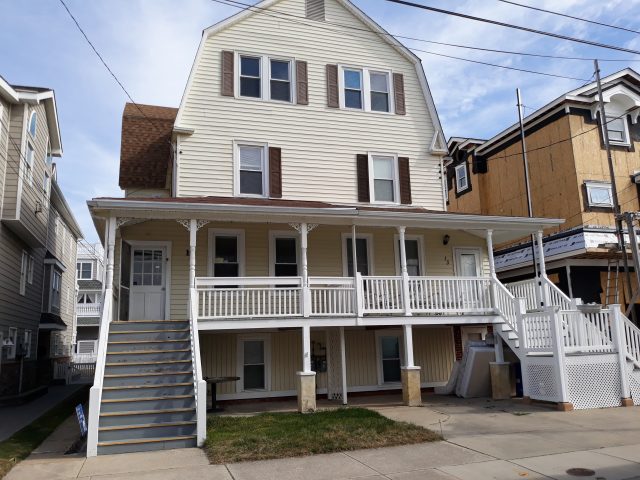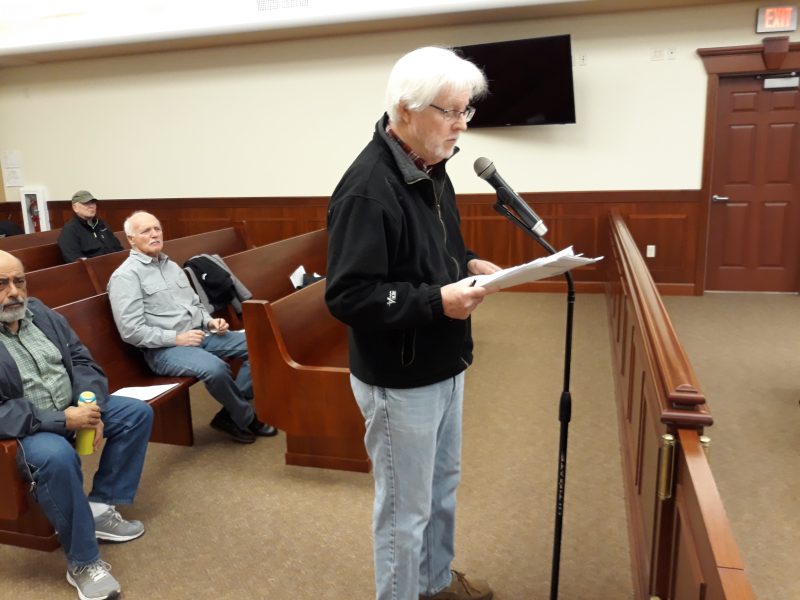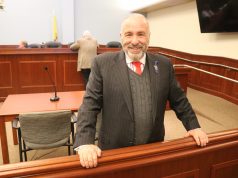
By DONALD WITTKOWSKI
It appears Sea Isle City will not be creating special “parking zones” to accommodate three historic homes that were built on undersized lots and don’t have driveways.
In February, a local resident approached City Council with a novel plan to reserve up to six parking spaces on the street for homeowners who can’t safely fit their cars on their historic property.
Those homeowners would buy up to two seasonal parking permits from the city for the exclusive right to use those spaces, according to the plan.
The resident, Andrew Bednarek, appeared before Council again on Tuesday to see if there was any support for his proposal from the governing body.
City Solicitor Paul Baldini told Bednarek that he is recommending against the proposal because of the potential legal complications of having street parking reserved for individual homeowners instead of allowing the general public to use those spaces.
“I have some reservations about that,” Baldini said of Bednarek’s proposal. “There are numerous areas around town that have similar circumstances.”
Baldini noted that Council would have the final say in deciding the issue.
In an interview after the Council meeting, Baldini explained that homeowners would effectively have “possessory rights” if the city granted them those parking spots. Members of the public, in turn, “would be frozen out” from using the same parking spaces, Baldini said.
Although Bednarek is proposing the parking plan for only three historic homes, Baldini said other property owners in similar circumstances could theoretically ask the city for the same type of parking arrangement.
“How do I give it to (one homeowner) and say no to the other guy around the corner?” Baldini said.

Baldini also noted that a “whole slew” of historic homes in the city’s Townsends Inlet section, as well as a block of old houses along Landis Avenue at 47th Street, were built on undersized lots and don’t have driveways. All of those homeowners could monopolize a large number of parking spaces on local streets if they were given exclusive rights to use the spots, he said.
“Everyone will have a unique reason why (they) should have parking in the streets,” Baldini said.
Sea Isle, however, does allow residents who have disabilities to use the parking spaces in front of their homes if they don’t have driveways.
“We are sensitive to people who have physical needs and don’t have a driveway,” Baldini said.
Bednarek urged City Council to use his plan for special parking zones as a test program to find out whether it could serve as a model for the rest of Sea Isle.
“It’s a novel idea to try to find individuals who find themselves in this circumstance,” he told the Council members.
In all, three historic homes in the beach block east of Pleasure Avenue would fit the criteria for his parking plan, Bednarek said. They include the Bednarek family house at 15 51st Street and its attached “twin” home at 13 51st Street. The third home is at 4209 Pleasure Ave.
All of those homes were built in the late 1800s or early 1900s, before automobiles were invented or mass produced. Houses had no need for driveways back in those days.

In order to build on-site parking on the undersized lots of the three historic homes now, the owners would have to obtain a zoning variance. The owner of 13 51st Street has an application with the zoning board for such a variance, Bednarek said.
Bednarek, though, said his parking proposal would help historic homeowners avoid the expense of hiring attorneys, architects and engineers to file zoning applications. There would be no need for those homeowners to build parking spots on their undersized lots if they could use designated paid parking spaces on the street, he explained.
He also believes it is important to maintain the visual, aesthetic and architectural character of the historic homes – instead of altering them by adding new parking spaces on undersized lots.
Bednarek explained that court cases in New Jersey, and a case in Virginia that made it all the way to the U.S. Supreme Court, support the type of parking plan he has proposed. Other New Jersey municipalities, including Atlantic City, Princeton, Ridgefield and Edgewater, already have parking ordinances similar to his on-street parking plan, he said.







